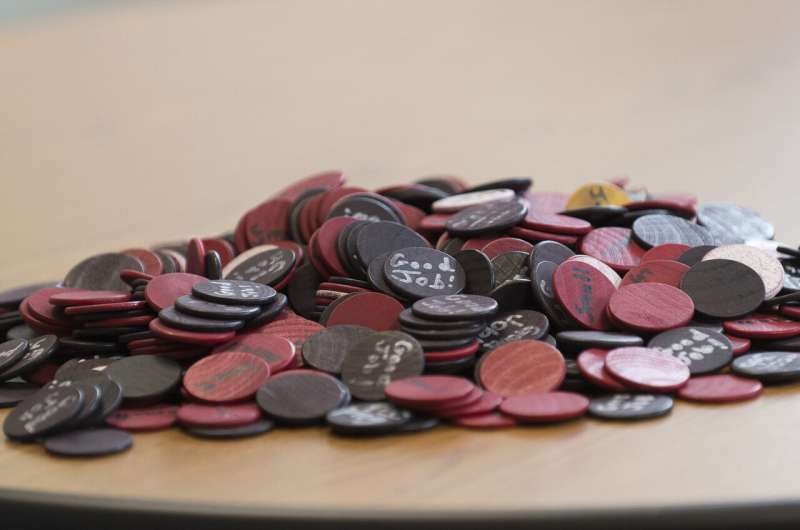
The researchers’ findings showed that participants who were given A low-cost, easy-to-administer intervention that uses small prizes and other incentives to reward alcohol abstinence can serve as an effective tool to reduce alcohol use among American Indian and Alaska Native communities, new research suggests.
Published today in JAMA Psychiatry, the study tested a culturally adapted version of an intervention known as contingency management in American Indian and Alaska Native adults diagnosed with alcohol dependence, a severe form of alcohol use disorder. The researchers’ findings showed that participants who were given incentives to reward alcohol abstinence were 70% more likely to test negative for alcohol use than control participants.
“Contingency management can help people jumpstart their interest in cutting down on their drinking in a way that is positive, helps build their confidence, helps them feel connected, and really acknowledges their journey and their recovery,” said study co-author Katherine Hirchak, a descendant of the Eastern Shoshone Tribe and an assistant research professor at the Washington State University Elson S. Floyd College of Medicine. She said the intervention’s positive approach fits well with Native values and helps counterbalance the stigma around alcohol use among American Indian and Alaska Native people, a complex issue that defies generalizations.
Designed and conducted in partnership with three Native communities in urban and rural areas in Alaska, the Pacific Northwest, and the Northern Plains, the study is the first multi-site trial to test the use of contingency management to reduce alcohol use among Native adults. It follows on another recent study published by the researchers in the journal Addiction that showed similarly promising results on a single rural reservation in the Northern Plains.
“Together, these two studies provide evidence that this intervention would work across a diverse group of Native communities and could be used as one part of a comprehensive system of addiction treatment to help reduce alcohol-related inequities in Native communities,” said lead author Michael McDonell, a professor at Washington State University’s Elson S. Floyd College of Medicine. He added that the studies were also two of the largest of this intervention in alcohol use disorder in any population.
As part of the multisite study, the researchers conducted a 12-week trial that included 158 participants recruited across the three sites. Participants were randomized into a contingency management intervention that provided incentives for submitting alcohol-negative urine samples during twice weekly visits, or a control intervention that provided incentives for simply submitting urine samples with no requirement for alcohol abstinence.
Alcohol abstinence was verified through ethyl glucuronide (ETG) testing, which can detect the presence of alcohol in urine for up to three days. Incentives were given through prize draws that had participants drawing tokens that either contained positive phrases, such as “good job,” or could be exchanged for prizes that varied in value from $1 up to $80. Prizes included gift cards, culturally significant items such as fishing equipment or beading supplies, and practical items like shampoo and clothing. For participants in the contingency management intervention, the number of prize draws at each visit increased with the length of their abstinence.
The researchers’ finding that contingency management participants were 70% more likely to submit an alcohol-negative urine sample is a modest but significant effect that McDonell said is amplified by the intervention’s low cost—with the median total cost of prizes per person being only $50—and its potential public health benefit to a large group of people. The intervention can be used with minimal staff training and could be conducted from any location. Recently introduced rapid urine test cups have eliminated the need for expensive urine analyzing equipment that was used in the study, removing one potential barrier to widespread adoption of contingency management.
McDonell said he is already in contact with different tribes and states interested in training communities on how to use this approach. Researchers and employees at Southcentral Foundation—an Alaska Native-owned nonprofit health care system that served as one of the three study sites—had the opportunity to observe the intervention’s benefits firsthand. Southcentral Foundation’s Four Directions Outpatient Treatment Center is looking at incorporating it into its intensive outpatient substance use treatment program.
Source: Read Full Article
